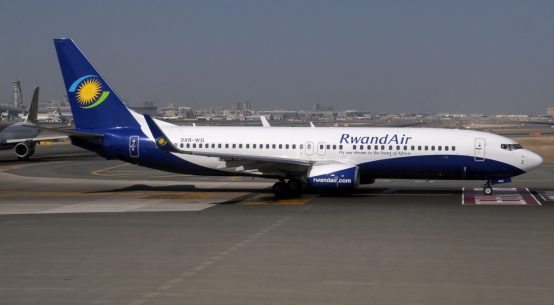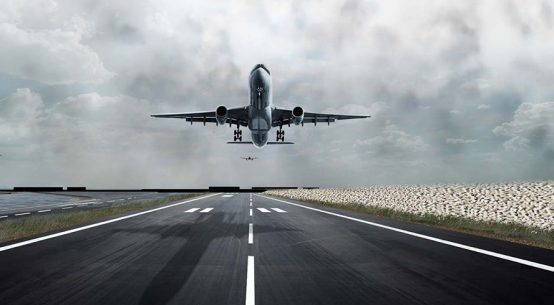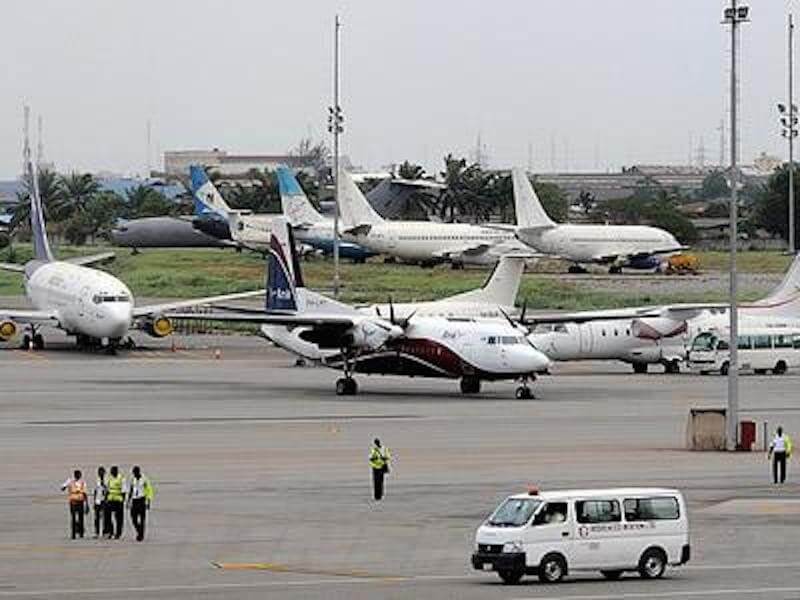
INTERVIEW – In this interview with ANTHONY AWUNOR of the LEADERSHIP Newspaper, Engineer Saleh Dunoma, the Managing Director of the Federal Airports Authority of Nigeria (FAAN) explains the readiness of FAAN on Certification of Lagos airport and how important the process is to the aviation industry. Excerpts:
Lagos airport is expected to be certified soon according to DG NCAA. What is the level of readiness of FAAN?
As far as FAAN is concerned, we are ready. We have been working on this for quite some time now and most of the open items have been closed. But you see, if we close it, we need to go back to NCAA so that they can come and confirm the closure.
What lessons are there to learn giving the resources that have been put into this exercise?
I am not looking at it from the angle of resources put into this exercise, but I am looking at it from the level of achievement in terms of safety. Certification is all about safety. We have by way of going through the process of certification achieved a lot of safety standards. Before this time, we had an assessment. NCAA did an assessment on all the safety issues at the airports. And then, ACI (Airport Council International) in conjunction with ICAO also did an assessment. So, we combined the two assessments both the one done by ICAO/ACI and the one done by NCAA. We put them together so that we can address them. we have been addressing them and NCAA is supervising us to confirm whether those issues have been closed. So, as soon as we close them, NCAA will tell us if it is properly closed. If there are corrections, we will do the corrections. The assessment as far as we are concerned is the level of safety standard we have achieved, which is higher than what it used to be before the certification process. This is what is important to us. Resources, yes, we have put in some resources. Of course, there is no way you can achieve a level of safety without investing but what is important is the safety achievement.
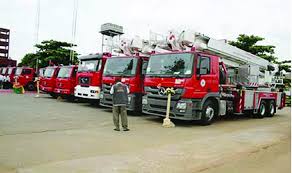
You are talking about items closed. What are the items specifically?
There are so many items. If I remember rightly, there are over 100 items that we need to close. There are some of them, that have to do with procedures. Those ones are easy to close. There are some that have to do with documentation. For example, what we publish as FAAN as procedures or processes, when it is found. For example, if you say you have Category 9 fire service, you must make sure you have it at 9; in terms of equipment, the number of people, in terms of your documentation and your processes. So, if there are gaps in that, you have to make sure you close them. There are so many of them in so many areas. On the airfield, that has to do with the airfield lightings and the runway itself, on personnel, documentation, training, and on maintenance. There are so many covering the entire aspect of airport operations. As we speak, there are only a few of them that needed to be closed.
What are the challenges you are facing in the process of this certification?
The challenges at the beginning were resources. At the beginning, we thought we might not need many resources. But at the end of the day, after the assessment, we discovered that we have a lot to do. The only thing we needed to do was to make provisions in our budget that these are the special fund to address the certification. Once we got the assessment and the fund provided, our engineers swung into action. The engineers came with the estimate of how some of the technical issues, some of the documentation and some of the new things we need to provide to make sure that we close the gaps. So, with the provision in our budget, there was no issue again. A budget was provided and everything is going smoothly and that is why we are at this stage.
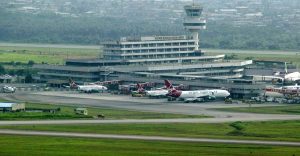
For this certification to be taking place, it shows that there are items that were not in place looking at Lagos and Abuja airport. What were they?
Not that they were not in place. We have aircraft recovery equipment for example in place. We have it in Kano, we have it in Lagos. But these are things you do not use regularly. For a long time, we have not used them, because we do not have any need to use them and I pray that we will not have any need to use them. But we must make sure they are functional at all times. We were asked to keep that equipment in the fire station, it has to be tested regularly to make sure that it is functional. Before this time, it was not at the fire station. These are some of the observations that were made. Not that we did not have it.
DG NCAA said Lagos airport will be certified very soon. From your view as the operator of the airport, how soon can this be?
I cannot say how soon. As far as I am concerned, we are getting ready and we will make sure that we comply with all standards giving to us by Nigerian Civil Aviation Authority. We have worked towards that, and it is left for them to look at what we have done and confirm that we have properly closed all the items. Or we have not and then, they will tell us what to do in order to close it. They (NCAA) are to do the certification, we are to get ready. As far as we are concerned, we are ready. Certification is important. We would not know that there are a lot of things-little little things that we needed to do to make sure that we close all such items. Without the assessment, we would never know that there are open items. With certification, everything was looked into, including documentation, sometimes, a telephone number for example in the emergency contact telephone numbers. In a case of emergency, may be one person has been transferred and the phone number has changed and his name has changed. Under normal circumstances, we would not bother. But with the certification, we must make sure that whoever is there is current. Certification is making sure that everything is current and checked on regular basis.
It is not only getting the certificate but sustenance of the certificate is important. Yes, we have worked hard that we close the items, but we must sustain it. Also, what is important is the currency in terms of training of personnel. We must make sure that all personnel are properly trained. If you acquire an equipment, for example, we must make sure that people that will operate the machine are trained on that particular machine. We cannot bring an experience from another machine to another because they are different. There is always change in technology. We must change our operating procedure if there is a new model of a machine. And we must train the personnel so they are abreast with the new technology. NCAA will come and check all the changes from time to time. If NCAA finds out that there are so many things not done, they have the liberty to withdraw the certificate. We have to come up maintenance system with our runway, airfield lightings. It is adding another level to the maintenance and sustenance of all operations to what we used to have before now. It has added another level to the improvement of safety at the airport. It is also going to make the airport users, especially the airlines more comfortable. More comfortable in the sense that they know now that we have a standard that we must make sure we sustain. It will also go a long way in assuring the insurance companies that operator is doing a lot of things in line with what the regulator says. It might even reduce insurance premium for the airline operators.
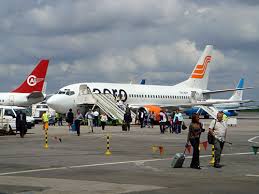
Tell us more about FAAN
Our vision is to be amongst the best airport groups in the world. FAAN’s Mission is to develop and profitably manage customer-centric airport facilities for safe, secure and efficient carriage of passengers and goods at world-class standards of quality.
FAAN performs its statutory duties, according to the policy guidelines provided by the Federal Government of Nigeria, through the Federal Ministry of Transportation and is guided by these in all of its business dealings and agreements with contractors and various third parties with which it does business.
FAAN welcomes the private sector to partner with it in various areas of its statutory mandate to provide adequate infrastructure and facilities and service delivery to support the Nigerian aviation industry.
FAAN observes business policies that are in conformity with the policies of the Federal Government as regards contracts and business agreements. It observes appropriate due process practices in line with government policies and which are also in conformity with global best practices in the international aviation industry.
All its business and service agreements are transparent and follow established government policies, including the Due Process Act.
FAAN is also a signatory to the anti-corruption policies of the Independent Corrupt Practices Commission, ICPC and has set up an internal implementation committee for this purpose.
Give us a brief history
FAAN performs its statutory duties, according to the policy guidelines provided by the Federal Government of Nigeria, through the Federal Ministry of Transportation and is guided by these in all of its business dealings and agreements with contractors and various third parties with which it does business.
In 1976, Nigeria Airports Authority was established. The Nigerian Airports Authority, NAA which later became Federal Airports Authority of Nigeria, FAAN was set up by the Nigerian government by Decree 45 of 1976, to oversee the operations and maintenance of all Federal airports. In 1995, it was renamed FAAN. The aviation agency was re-named, Federal Airports Authority of Nigeria, FAAN in August 1995, following a major restructuring and reforms of the Nigerian Aviation sector by the Federal Government.
In 2013, there was Upgrading and Remodelling of Airports and the Federal Ministry of Aviation launched the most ambitious rehabilitation programme that the aviation industry has experienced since inception. The upgrade and rehabilitation programme involved the remodeling and rehabilitation of 22 Federal government-owned airports around the country. Many of the country’s airport terminals that had not been refurbished for long, were rehabilitated and remodeled to increase their capacity. That programme is 90 per cent completed.
In 2015, FAAN got US FAA’s Category One Re-Certification. The audit assessed the country’s aviation safety rules, procedures, and available facilities, giving them a pass mark.
The Category One certification will enable bilateral air connections between the two countries, allowing airlines of both sides to fly directly to either country.
What about the airports?
We have Murtala Muhammed International Airport. The International and Cargo terminals open 24 hours daily. It is the nation’s busiest airport – with two terminals – International and Cargo terminals open 24 hours daily while the domestic terminal opens 16 hours daily.
Nnamdi Azikwe International Airport is the nation’s second-busiest airport. NAIA was built in the early 2000 and opened in 2002. It holds a pride of place, among airports in the country, as the international airport for the country’s federal capital, Abuja.
Mallam Aminu Kano International Airport, MAKIA is one of the country’s oldest international airports. The remodeled Mallam Aminu Kano International was remodeled and commissioned on March 15, 2015, by HRH, Emir of Kano, Sanusi Lamido Sanusi on March 15, 2013.
Port Harcourt International Airport, PHIA plays a very important role in the economy of the country. The PHIA allows direct air connections between the country and major destinations around the world, especially to and from Western countries.
Akanu Ibiam International Airport is one of the five international airports in the country and operated by FAAN. The Akanu Ibiam International Airport is located in Enugu, reputed as the ‘coal city’ alluding to the days of old when it was the centre of a flourishing coal mining industry.
We have Margaret Ekpo International Airport, Calabar and also Sam Mbakwe Airport, Owerri commenced operation in 1994. Sam Mbakwe Airport was built by the Imo State Government and handed over to the Federal Government of Nigeria under the management of FAAN.




